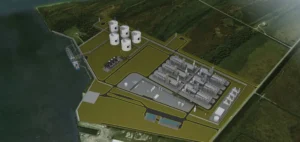For Equinor, long-term gas contracts will be of increasing interest in Europe. The company announced on Friday that gas buyers in Europe are showing significant interest in long-term supply contracts of between three and ten years. This statement was made by the company’s CEO, Anders Opedal, in an interview with Reuters.
Equinor welcomes von der Leyen and Stoltenberg to the Troll A platform in the North Sea
Equinor welcomed Ursula von der Leyen, President of the European Commission, and Jens Stoltenberg, NATO Secretary General, on Friday during a visit to the Troll A gas platform in the North Sea.
Equinor pointed out that the Troll A platform alone supplies 11% of all gas consumed in the European Union. According to Opedal, the visit of von der Leyen and Stoltenberg underlines the importance of security of supply and energy infrastructure in the relationship between the European Union and Norway.
Equinor on long-term gas contracts
European Union countries are planning joint gas purchases to improve security of supply, especially in view of the sharp reduction in gas flows from Russia. Ursula von der Leyen, the president of the European Commission, said earlier Friday that she hoped companies would sign longer-term agreements to support the initiative.
According to Opedal, long-term contracts are defined as having a duration of between three and 10 years. He added that companies are currently very interested in these types of contracts.
Gas prices hit record highs last year
In 2022, short-term gas prices in Europe reached record highs above 340 euros per megawatt hour, more than ten times the levels of the last ten years. However, these prices have since dropped to around 44 euros on Friday as demand has declined.
In conclusion, Equinor noted a growing interest from gas buyers in Europe for long-term gas supply contracts to improve the security of gas supply in the region. The visit of the President of the European Commission and the Secretary General of NATO to the Troll A gas platform underlines the importance of the security of energy supply in the relations between the European Union and Norway.






















